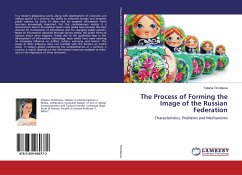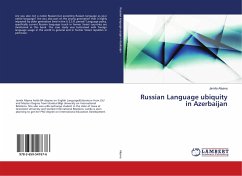
Russian entrepreneurship at the turn of the century
a touch to the portrait
Versandkostenfrei!
Versandfertig in 6-10 Tagen
39,99 €
inkl. MwSt.

PAYBACK Punkte
20 °P sammeln!
The author of the monograph focuses on the specifics of the formation of Russian entrepreneurship in the post-perestroika period. The author considers the entry into entrepreneurial activity in a transforming society as one of the forms of adaptation of Russians to changes in the environment. The analysis of dominant adaptation strategies allows us to distinguish three groups in the structure of the Russian entrepreneurial layer: "parasitic", "surviving" and "innovative". The formation of the modern Russian entrepreneurial layer takes place in a special socio-cultural situation, characterized ...
The author of the monograph focuses on the specifics of the formation of Russian entrepreneurship in the post-perestroika period. The author considers the entry into entrepreneurial activity in a transforming society as one of the forms of adaptation of Russians to changes in the environment. The analysis of dominant adaptation strategies allows us to distinguish three groups in the structure of the Russian entrepreneurial layer: "parasitic", "surviving" and "innovative". The formation of the modern Russian entrepreneurial layer takes place in a special socio-cultural situation, characterized by a spiritual crisis of society, the loss of value orientations, the prevalence of individualistic strategies of asocial nature. At the macro-social level the formation of entrepreneurship is deformed under the influence of the processes of shadowization and criminalization. Of particular interest is the use of the civilizational approach, thanks to which the connection between the catching-up type of development of the Russian civilization and the dominance of the "parasitic" group has been established. The publication will be useful to sociologists, psychologists, economists, entrepreneurs - everyone who is interested in the problems of formation of Russian entrepreneurship.












